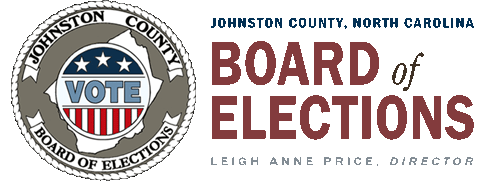Types of Elections Held
An election is a formal decision-making process by which a population chooses an individual to hold public office. Laws, rules, and procedures in North Carolina elections may differ depending on the type of election. The following paragraphs explain some of these differences.
General Elections
General elections have the most offices and issues on the ballot and usually generate more interest and higher turnout than any other elections. Many general elections include state constitutional amendments. City or county issues may also appear on the ballot.
Most offices on the general election ballot are partisan. Offices on the ballot include:
- President and Vice-President (leap years)
- Governor and Lt. Governor, and other statewide officials (non-leap years)
- US Senator and Representative
- State Legislators
- County Officials
Non-partisan offices on the general election ballot are:
- Board of Education
- Supreme Court Associate Justice
- Court of Appeals Judge
- District Court Judge (District 11)
- Soil and Water Conservation District Supervisor
General elections are held the first Tuesday succeeding the first Monday in November, in even numbered years. You may vote for the candidates of any party, regardless of your political party registration.
Primary Elections
In a primary election, no candidates are elected. Instead, voters who are affiliated with political parties nominate their candidates to run in the November general election. Unaffiliated registered voters can choose to vote either a Democratic or Republican ballot.
Statewide primaries occur on the Tuesday following the first Monday in March preceding the November general election.
Municipal Elections
Mayors, Town Council Members, and Town Commissioners are chosen in municipal elections. Municipal elections are held in November during odd-numbered years and are non-partisan. Registered voters living within the city limits are eligible to vote in municipal elections.
Special Elections
Special elections are held as required and may occur for a number of reasons. Some examples of recent special elections in Johnston County include:
- School Bonds
- Sales Tax
- Water Bond
- Beverage Election
More Information
For more information on elections, contact the Elections Office directly.
Page last updated: November 6, 2023



